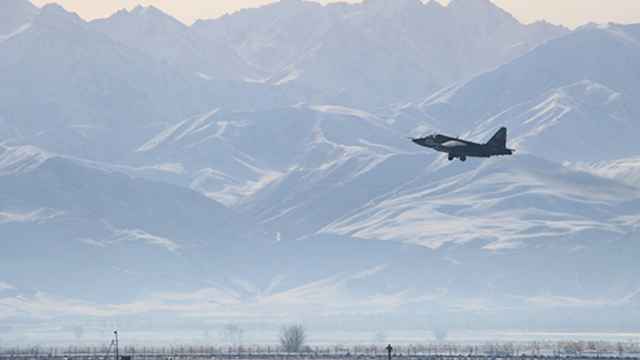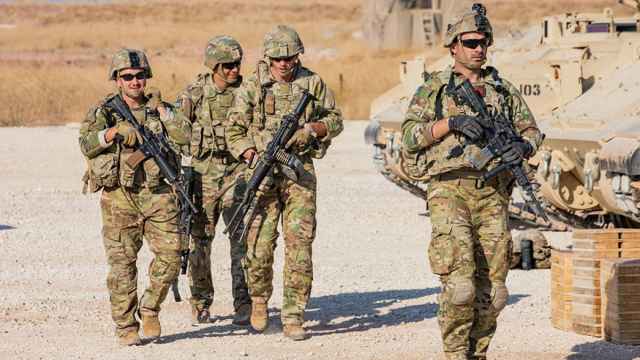U.S. intelligence has concluded that a Russian unit offered rewards to Taliban-linked militants to kill troops of the U.S.-led coalition in Afghanistan, The New York Times reported Friday.
The purported bounties gave incentives to the guerrillas to target U.S. forces, just as President Donald Trump tries to withdraw troops and end America's longest war.
The newspaper, citing anonymous officials, said that Trump was briefed on the findings in March, but has not decided how to respond.
It said that militants were believed to have collected bounty money, but that it was unclear whether specific killings of U.S. troops were under suspicion.
The newspaper quoted a Kremlin spokesman saying only that Russia was unaware of the accusations.
Russia has a tortured history in Afghanistan, where the former Soviet Union in its final years was bogged down in a devastating fight against Islamic guerrillas, then backed by Washington.
But Russia has more recently been accused by the United States of quietly providing small arms to the Taliban.
The New York Times said there were different theories on why Russia would support Taliban attacks, including a desire to keep the United States bogged down in war.
It said that the Russian unit may also be seeking revenge over the U.S. killing of Russian mercenaries in Syria, where Moscow backs President Bashar al-Assad.
According to the newspaper, the Taliban operation was led by a unit known as the GRU, which has been blamed in numerous international incidents including a 2018 chemical weapons attack in Britain that nearly killed Russian-born double agent Sergei Skripal.
U.S. intelligence concluded that Russia intervened in the 2016 presidential election in a bid to assist Trump, including through manipulation of social media.
Trump has scoffed at the findings and sought a warmer relationship with President Vladimir Putin, even as his administration keeps imposing sanctions over Russia over its actions on Ukraine.
Russia on Saturday denounced the report claiming that Moscow's spies had offered rewards to Taliban-linked militants to kill troops of the U.S.-led coalition in Afghanistan as "baseless" and dangerous.
The "baseless and anonymous accusations," published by the newspaper, had "already led to direct threats to the life of employees of the Russian Embassies in Washington D.C. and London," the Russian Embassy in Washington wrote on Twitter.
"Stop producing #fakenews that provoke life threats, @nytimes," it added in a later tweet.
A Message from The Moscow Times:
Dear readers,
We are facing unprecedented challenges. Russia's Prosecutor General's Office has designated The Moscow Times as an "undesirable" organization, criminalizing our work and putting our staff at risk of prosecution. This follows our earlier unjust labeling as a "foreign agent."
These actions are direct attempts to silence independent journalism in Russia. The authorities claim our work "discredits the decisions of the Russian leadership." We see things differently: we strive to provide accurate, unbiased reporting on Russia.
We, the journalists of The Moscow Times, refuse to be silenced. But to continue our work, we need your help.
Your support, no matter how small, makes a world of difference. If you can, please support us monthly starting from just $2. It's quick to set up, and every contribution makes a significant impact.
By supporting The Moscow Times, you're defending open, independent journalism in the face of repression. Thank you for standing with us.
Remind me later.






